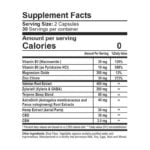
Is Recreational Weed Legal in Illinois: A Comprehensive Guide
- Historical Background of Cannabis Legislation in Illinois
- The Legalization of Recreational Weed in Illinois
- Possession and Purchasing Limits
- Retail Landscape and Access
- Legal Age Identification and Consumption Regulations
- Home Cultivation
- Taxation and Revenue Allocation
- Driving and Impaired Driving Laws
- Workplace and Employment Considerations
- Public Health and Safety Education
- Future Outlook and Potential Changes
- Conclusion
In this guide, we will delve into the legal status of recreational weed in the state of Illinois. From its historical context to current legislation, we’ll explore the ins and outs of recreational cannabis use in the state. Whether you’re a resident or a visitor, this guide aims to provide you with a clear understanding of the laws and regulations surrounding recreational weed in Illinois.
This post is intended as information and for general knowledge only. It is not a substitute for medical advice, diagnosis, or treatment. It is recommended that you talk to a healthcare professional about this before introducing cannabinoids into your daily routine (especially if you have been diagnosed with any medical conditions or are under any medication). It is not recommended to drive or operate any machinery when using cannabis- or hemp-derived products. Use responsibly!
Historical Background of Cannabis Legislation in Illinois
Overview of Cannabis Regulation History
To understand the progression of cannabis laws in Illinois, it’s crucial to trace the journey from complete prohibition to decriminalization and medical legalization. The evolution of public opinion played a pivotal role, paving the way for recreational legalization.
Milestones Leading to Legalization
The passing of medical cannabis laws marked a significant turning point, setting the stage for Illinois to legalize recreational use. These milestones, driven by changing attitudes and growing recognition of marijuana’s potential benefits, created a foundation for broader legalization.
The Legalization of Recreational Weed in Illinois
Illinois Cannabis Regulation and Tax Act
The Illinois Cannabis Regulation and Tax Act stands as a testament to the state’s forward-looking approach to cannabis regulation. By regulating, taxing, and promoting responsible cannabis use, the Act seeks to balance the interests of public health, safety, and revenue generation.
Provisions and Regulations
The Act includes provisions on possession limits, licensing requirements, and social equity initiatives. These regulations aim to ensure fair access to the industry and prevent excessive cannabis consumption.
Possession and Purchasing Limits
Personal Possession Limits
Under the Act, Illinois residents can possess a certain quantity of cannabis for personal use in public and private spaces. This limit helps prevent excessive possession and promotes responsible marijuana use.
Medical Cannabis Patients
Individuals with medical cannabis prescriptions enjoy different possession limits, acknowledging the therapeutic value of cannabis for certain medical conditions.
Retail Landscape and Access
Dispensary Licensing Process

To operate a licensed dispensary, applicants must adhere to a rigorous process outlined by the Illinois Department of Financial and Professional Regulation. This process ensures that dispensaries are run by responsible and knowledgeable operators.
Geographic Distribution
Dispensaries are strategically distributed across the state, ensuring that access to recreational cannabis is equitable and convenient for all residents, from Chicago to St. Louis.
Legal Age Identification and Consumption Regulations
Minimum Legal Age
Individuals must be of legal age to purchase and consume recreational cannabis. Verifying age through accepted identification is crucial to prevent underage marijuana use.
Consumption Guidelines
Responsible consumption is emphasized, with restrictions on public use. Adhering to these guidelines is essential to promote a safe and harmonious community environment.
Home Cultivation
Cultivation Rules
The Act outlines regulations for home cultivation, including limits on plant quantity and growth stages. These rules prevent excessive cultivation and the potential for illegal distribution.
Security and Cultivation Space
Home cultivators are required to secure their cultivation areas to prevent access by minors. This measure aligns with the state’s commitment to responsible cannabis use.
Taxation and Revenue Allocation
Tax Structure
Cannabis sales are subject to various taxes, such as excise and sales taxes. These taxes contribute to the state’s revenue stream.
Use of Tax Revenue
The generated tax revenue supports crucial programs, including education, substance abuse treatment, and initiatives aimed at achieving social equity within the cannabis industry.
Driving and Impaired Driving Laws
DUI Laws
Just as with alcohol, there are legal limits for cannabis impairment while driving. The Illinois State Police enforce these laws to ensure road safety.
Testing Methods
Law enforcement employs various methods, from field sobriety tests to drug recognition experts, to determine cannabis impairment and ensure responsible driving.
Workplace and Employment Considerations
Employer Policies
Employers have the right to uphold drug-free workplace policies. These policies may address cannabis use, especially in safety-sensitive positions.
Employee Protections
While employers can enforce drug-free policies, protections exist for employees who consume cannabis outside of work hours. Balancing individual rights with workplace safety is crucial.
Public Health and Safety Education
State-sponsored Campaigns
Illinois spearheads public education campaigns to promote responsible cannabis use and safety. These campaigns are vital for ensuring informed choices.
Resources for Individuals
Individuals seeking help for cannabis-related issues, be it addiction or adverse effects, can access state-provided resources.
Future Outlook and Potential Changes
Possible Amendments
As public attitudes evolve and the industry matures, cannabis laws may undergo amendments to address emerging challenges and opportunities.
Anticipated Developments
The cannabis landscape is dynamic, with trends indicating the growth of new products, market expansion, and regulatory refinements.
Comparative Analysis
By comparing Illinois’ cannabis regulations with those of other states, we can gain insights into best practices and areas for improvement.
Conclusion
By exploring the comprehensive landscape of recreational cannabis legalization in Illinois, this guide has provided an in-depth understanding of the laws, regulations, and considerations surrounding its use. Whether you’re a resident, a traveler, or someone interested in cannabis policy, staying informed about the legal framework is essential for responsible and compliant consumption. Always remember that laws can change over time, so staying updated on the latest developments is crucial.
















